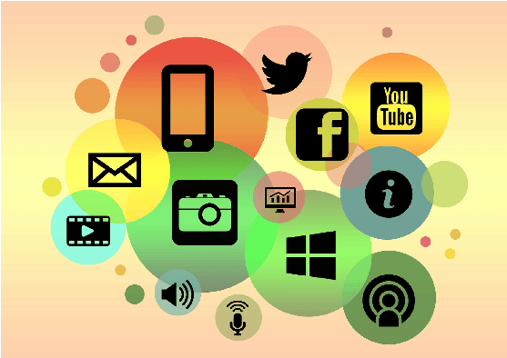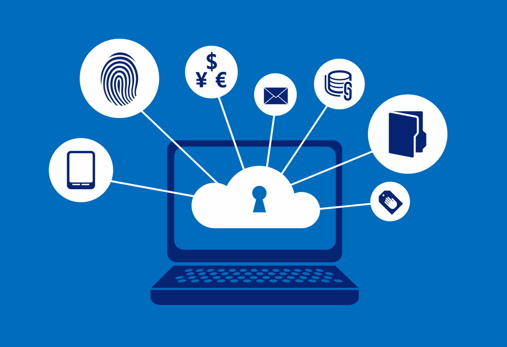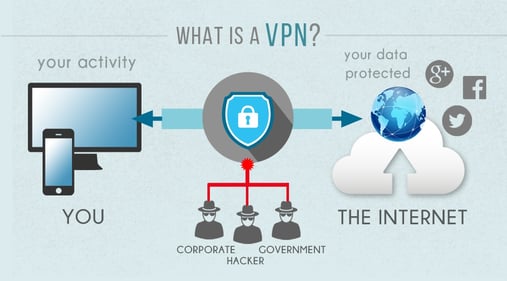Social media has become a great way to promote your personal and business endeavors. Having a successful online image via a number of the many available social media platforms is a great way to extend your reach and grow your client base.
However, showcasing so much or yourself and your personal information online can always be a risky business, and the repercussions if the accounts are not managed and maintained properly can be devastating.
Online security is something that is perhaps not considered as often as it should be in regards to social media, but ensuring you properly regulate your online image—particularly if you’re doing so to promote a business or service—is essential if you want to avoid the destruction of
eputation that comes alongside sloppy privacy and security policies.
Why Is It Important?
There are many ways that failing to properly maintain your online accounts could be detrimental. First, sharing personal information on the internet always puts you at a significant amount of risk. Online identity theft is becoming increasingly more prevalent, and if you’re not protected and someone intercepts your details, then you could easily become a victim. This could happen via the information you chose to publicly share or through a malicious hack infiltrating your system and gaining data from the inside.
Similarly, we all have information and parts of our lives that have to be hidden from our professional and public appearance. If this information, voluntarily or otherwise, falls into the public domain, then the disaster it will have for your online image and reputation could be irreversible. For anyone using social media as a way to promote themselves or their services, maintaining an appropriate online reputation is an essential part of the job description.
Set For Privacy
All social media platforms have advanced privacy settings; however, most of them don’t automatically implicate them. This means that all users should spend a considerable amount of time investigating these settings and adjusting them accordingly.
Things to consider when looking into this includes who you want to see what, as many post directed at family and friends will not be appropriate for colleges and clients; whether you need to investigate previous posts and change the settings on them and whether anybody else’s online actions—such as tagging you in photos—will affect the way your privacy settings work.
Most of the time it’s not just enough to check your profile to “private” and carry on. As well as changing the setting, you need to edit your online practice, such as dis-allowing friends to tag you in posts, strictly considering connected apps and plugins and the allowances they are set to, and changing whether search engines—such as Google—will include your social media page in searches usually come outside the typical privacy setting features but are essential to ensure your online image is maintained.
Filter Your Content
Next, it’s extremely important to have strict rules and vetting processes for the information you volunteer online. Consider the use of personal telephone numbers, addresses and email, who will have access to them once used and what repercussions that might have. Do you really want clients being able to access your home details?
Also be stringent about inappropriate comments and pictures. Many celebrities have been brought down due an unprofessional tweet that they’ve posted in a moment of rage. Similarly, incriminating pictures are highly unadvisable; your friends might think it’s funny that you got really drunk last weekend and passed out, but your bosses, partners and clients definitely will not.
This may seem like a simple and obvious point, but it’s astounding how little attention people pay to their social media content until they actually start looking at who will see each post and the repercussions that will have.
Protect From Hackers
Alongside the information you volunteer yourself, there’s also the risk of information being intercepted by malicious hackers. This could either be personal information used, as previously mentioned, to commit identity theft—or even credit card details to commit actual theft—or it could be incriminating pictures and stories that you do not want shared with the public. There have been many cases of hackers blackmailing prolific public figures and online personalities with information they’ve obtained through hacking their social media sites.
One of the best ways to protect yourself from this is through using a VPN (Virtual Private Network). It’s fair to say that most hacks of this nature take place when the victim is connected to public WiFi. These networks leave you notoriously vulnerable as they allow for all your traffic and data to be visible to any one else who is connected.
As most of us update social media on-the-go, we’re regularly putting ourselves at risk by relying on these insecure networks. Using a VPN creates a primary connection between your device and the VPN server before going on to connect to the internet. This mimics a private connection and means that all your data is encrypted and your identity is hidden, allowing you to browse safely and securely.
Get Security Alerts
Staying in-tune with your online activity is also an essential way to protect yourself and maintain your online image. Malicious hackers and cybercriminals are constantly continuing to advance, so it’s impossible to create a system that is guaranteed to protect you indefinitely.
Fortunately, there are many apps and plugins that monitor your traffic and flag if they see anything suspicious. They will then send you a notification, which will allow you to address and resolve the problem as quickly as possible. Android’s lead mobile intrusion detection app, LogDog, is already set to monitor your Facebook, Gmail, Evernote, Google and Dropbox accounts and is planning to add more social media platforms to this list in the near future. Similarly, Osclass offer a service that monitors any websites, wordpress or blogs that you administrate to protect them from hacks.
Social media is a great tool to increase your online influence and public image, but it has to be used wisely and carefully. These four points are great first steps to take to secure yourself and your online image, but if there’s anything else that you believe needs adding to the list, then be sure to leave a comment below.

